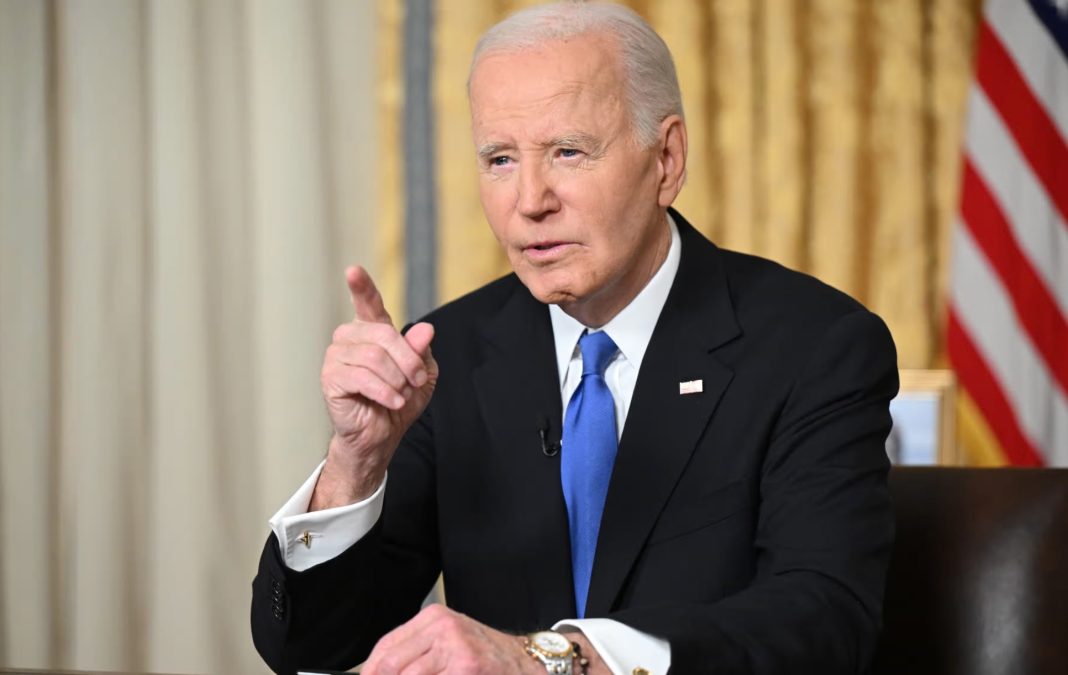GREENVILLE, USA — In his first interview since leaving the White House, former US President Joe Biden, speaking from his home state of Delaware, issued a searing critique of Donald Trump’s first 100 days back in office, expressed alarm over the potential collapse of the Atlantic Alliance, and defended his late exit from the 2024 race.
The 82-year-old, appearing slower and more reflective than in his presidential heyday, made clear he no longer felt bound by the tradition of silence observed by ex-presidents.
“This is not who we are,” he said, condemning Trump’s erratic foreign policy and mocking of NATO commitments.
He was especially incensed by Trump’s treatment of Ukrainian President Volodymyr Zelensky, describing it as “beneath America.”
Biden’s central warning was directed at what he sees as a growing fragility in the transatlantic alliance.
He called NATO’s founding pledge to defend every inch of member territory a “sacred obligation” and warned that Trump’s hostility toward allies could fracture global trust in American leadership.
“I’m worried Europe is going to lose confidence in the certainty of America,” Biden said, citing his fears of a geopolitical vacuum that could be filled by China and Russia.
The thought of abandoning NATO commitments, he argued, could change the course of modern history.
The former president reserved some of his most scathing words for Trump’s stance on the war in Ukraine, which he described as “modern-day appeasement.”
He dismissed Trump’s suggestion that Ukraine cede territory to Russia as naive and dangerous, arguing that Vladimir Putin’s ambitions extend far beyond Ukraine.
“Anybody who thinks Putin’s going to stop is just foolish,” Biden warned, referencing his own administration’s decision to avoid “World War Three” while still supporting Kyiv.
He denied that he withheld aid out of fear, asserting, “We gave them everything they needed to provide for their independence.”
Pressed on whether he regretted exiting the 2024 race just 107 days before the election, Biden was introspective.
“It was a hard decision,” he said.
But he remained adamant it was the right one, even as critics argue it left Vice President Kamala Harris scrambling to consolidate support.
He also responded to criticism of his fitness for office after a disastrous debate performance last June that cast doubts on his cognitive agility.
He did not shy away from the reality of aging, but remained firm in his conviction that he could have served out a second term had he chosen to.
The broader theme of Biden’s interview was the peril he sees facing democracy—not just in the U.S., but globally.
He described the present moment as one in which democratic ideals are “receding,” and said Trump’s approach to leadership is out of sync with constitutional norms.
“He’s not behaving like a Republican president,” Biden said, stopping short of calling Trump authoritarian, but clearly suggesting he sees the former reality star-turned-president as a destabilising figure.
Biden, the last U.S. president born during World War II, continues to view global leadership through the lens of American exceptionalism and shared democratic values.
As he handed the symbolic D-Day coin to his interviewer, he seemed to be passing along a warning as much as a memento.
“We’ve done it well for the last 80 years,” Biden said.
“And I’m worried there’s the loss of understanding of the consequences of that.”







